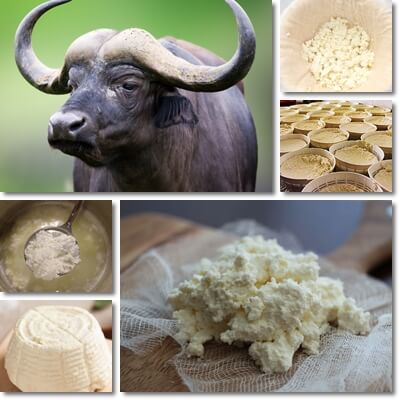Ricotta is the cheese for spinach lasagna, cannelloni, ravioli, pizza and stuffed shells or penne pasta. It goes great with vegetarian and meat-based dishes, but also desserts. It actually makes a wonderful dessert cheese and is especially suited for cheesecakes, chocolate tarts and cookies, but also for eating raw. From its Mediterranean homeland to the US, it’s a favorite! Considering it’s the go-to cheese for so many different dishes, it’s only natural to wonder: is ricotta good for you and why? Also, what makes ricotta better than other well-established, traditional Italian cheeses: its taste or health benefits?
The truth is, in no way is one food superior to all others and this is true for ricotta too. Depending on how much of it you eat and whether or not you have existing medical conditions that do not respond well to the consumption of dairy or various nutritional elements in ricotta, you may experience either benefits or side effects, or both. And it’s not absolutely better than mozzarella or mascarpone, asiago or pecorino or even the famous Italian parmesan cheese, Parmigiano-Reggiano (also see Properties and Benefits of Parmesan Cheese). But it does have its health benefits and a good nutritional value, both of which recommend it for consumption. The secret is to eat ricotta in moderate amounts so you can enjoy all the benefits it has to offer without any the potential side effects.

First, it’s important to understand that there are several different types of ricotta cheese:
1) Traditional Italian ricotta made from whey from cow, Italian water buffalo and, more recently, also sheep and goat milk.
2) Modern ricotta made from whole milk from cow, sheep and, more recently goat. This is the variety that is most widely available. It also comes in low-fat form, made from skim milk.
Both are available in the original form, as fresh, raw cheeses and as baked, smoked or aged (pressed, salted and dried). Find out more on the topic in our article on the 13 Different Types of Ricotta Cheese.
Overall, fresh ricotta is the most commonly available and the focus of this article. And both the traditional whey and whole milk varieties provide a similar nutrition, with whole-milk ricotta being just a bit more nutritious than the original whey ricotta in the sense that it contains more of the vitamins that are bound to the fatty part of the cheese (vitamins A, D, E and K), but also cholesterol, which serves important purposes in human nutrition and health.
Ricotta nutrition is determined by the raw ingredients used (whey, whole milk, part skim milk) and their varying nutritional properties (example: butterfat content of whole milk, fat content of part skim milk). This is why the same cheese made by different producers can have varying amounts of certain vitamins or minerals, fats or protein.
What are the health benefits of ricotta cheese?
Eating this particular type of cheese provides benefits for the brain and nervous system, immune system, muscles, bones and teeth, vision and skin as well as benefits for weight loss and pregnant women. Overall, it is a great source of nutrition and contributes to overall good health, if eaten in reasonable amounts, according to individual nutritional requirements.

1) Feeds the brain, stimulates memory and learning
Thanks to its relatively high fat content, ricotta constitutes food for the brain and supports thinking, memory and learning. Some of the fats it contains are also physically part of the brain, such as Omega-3 and cholesterol. Fats help the brain develop whilst in the womb and in the first few years of life. Eating ricotta raw can help reduce brain fog and boost productivity.
And just how much fat is in ricotta cheese? Depending on the brand, 100 g of fresh ricotta cheese provides an average of 8-10 g of fat, but some brands contain as much as 13-23 g of fat per 100 g.
How much cholesterol in ricotta? Usually between 30-60 mg of cholesterol per 100 g.
2) Good for the nervous system
Fat, cholesterol and protein all serve important functions for the nervous system. Omega-3 and Omega-6 fatty acids in ricotta contribute to the composition of the brain (the brain is around 60% fat). Cholesterol and vitamin B12 help make up the protective myelin coating surrounding the tail of nerve cells which allows nerve cells to better communicate electrical impulses (essentially information from and to the brain). Protein is made up of amino acids, many of which are essential for synthesizing neurotransmitters used by the brain to regulate mental health, cognitive activities, sleep, appetite, mood.
How much protein in ricotta cheese? 100 g of ricotta has an average of 10-11 g of protein. However, some brands provide only 7.5-8 g of protein per 100 g, while others as much as 20 g of protein per 100 g.
3) Boosts the immune system
Eating ricotta benefits the immune system because of its content of zinc, vitamin A and especially high protein content. Zinc is important for skin and boosts immunity, helping reduce the duration and even frequency of respiratory infections such as the common cold.
How much zinc in ricotta cheese? Between 4% and 12% of the recommended daily intake for an average adult on a 2000 kcal diet.
Vitamin A keeps healthy mucous membranes at the level of the eyes, nose, mouth, throat and intestinal tract, all entry points for viruses and bacteria. Protein in particular is just as important for the immune function. For example, some immune system cells (white blood cells such as antibodies) are made up of proteins and having enough protein in our diet enhances the immune system response.
4) Good for weight loss and gaining muscle
Studies show that eating protein and moderate amounts of fat is best for losing weight and gaining muscle. Fats provide longer satiation and energy, supporting intense physical exercise, while the amino acids that make up protein actively build muscle mass and help repair muscle fibers that have been damaged during physical exercise. Ricotta is a good food to eat after a workout to help you lose weight and build muscle.
5) Strengthens bones and teeth
Ricotta is a good source of both calcium and phosphorus, minerals which are part of the composition of our bones and teeth. Both calcium and phosphorus give bones and teeth strength and structure and help reduce osteoporosis and bone fractures risks.
How much calcium in ricotta? 100 g of ricotta contains about 300 mg of calcium, but some brands have less (160-270 mg). An average adult requires roughly 1300 mg of calcium a day, so ricotta is a good source of the mineral. Read the label for more exact nutritional information on ricotta.
How much phosphorus in ricotta? 100 g provides about 150 mg of phosphorus out of the 700 mg daily recommended intake for an average adult.
6) Benefits for vision and skin
Thanks to its good vitamin A content, eating ricotta helps enhance color vision and low-light vision and boosts visual acuity. Ricotta is also good for skin and helps repair damaged skin, prevents dry skin and acne and exerts an antioxidant action.
How much vitamin A in ricotta? Most ricotta varieties, especially whole milk, are good sources of vitamin A and provide about 120 micrograms of vitamin A per 100 g. An average adult on a 2000 kcal diet requires about 900 micrograms of vitamin A a day.
7) Good for pregnant women
Ricotta is healthy for pregnant women because of its generous content of vitamin B12, protein and fat as well as varied B vitamin profile. What are the health benefits of ricotta cheese during pregnancy? The vitamin B12 in ricotta helps produce red blood cells that support the circulatory system of the mother and prevents anemia caused by vitamin B12 deficiency. Eating ricotta is further good for pregnant women because is has a revitalizing, energizing effect and combats fatigue. The fats in ricotta help with brain development of the baby in the womb, while protein supports immunity and both physical and mental health. Read more about the Properties and Benefits of Ricotta.
Conclusion
So is ricotta cheese good for you or not? If consumed in limited amounts as part of an overall balanced and varied diet, the traditional Italian cheese makes a great addition to almost any diet. Eating ricotta is good for the brain and nervous system, supporting memory and learning and reduces brain fog, enhances the immune system function thanks to its good protein content in particular, helps you lose weight in a healthy manner and gain muscle mass, strengthens bones and teeth and holds benefits for eyesight and skin. It’s also a good food to eat during pregnancy as it favors both mother and child health as a result of a good vitamin B12 and fat and protein content.
